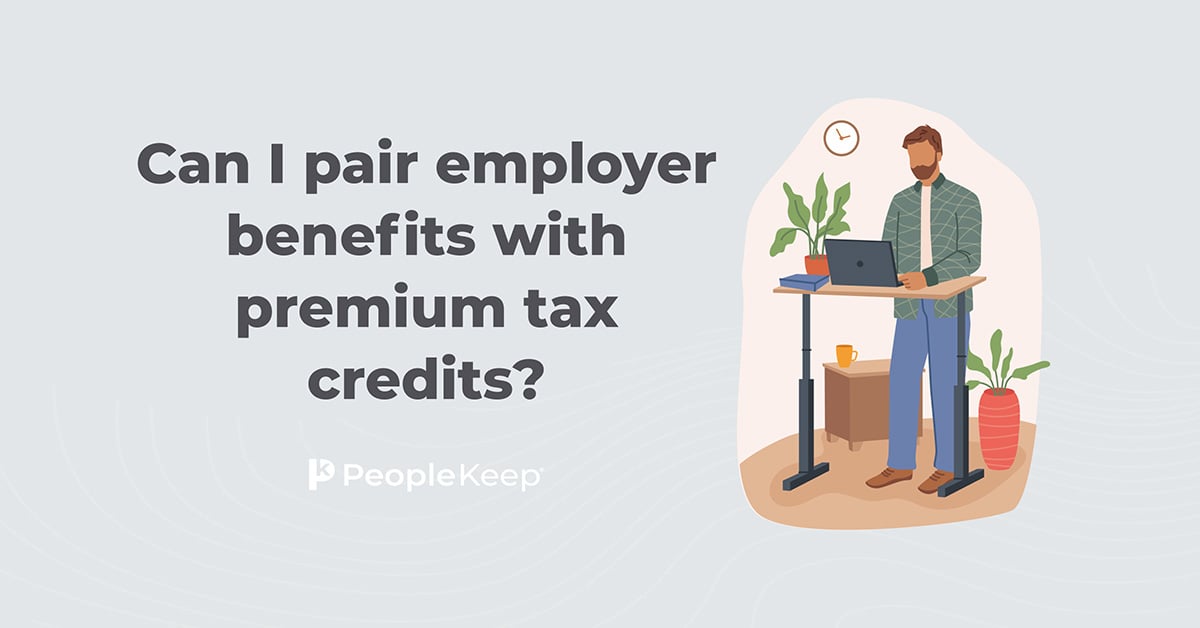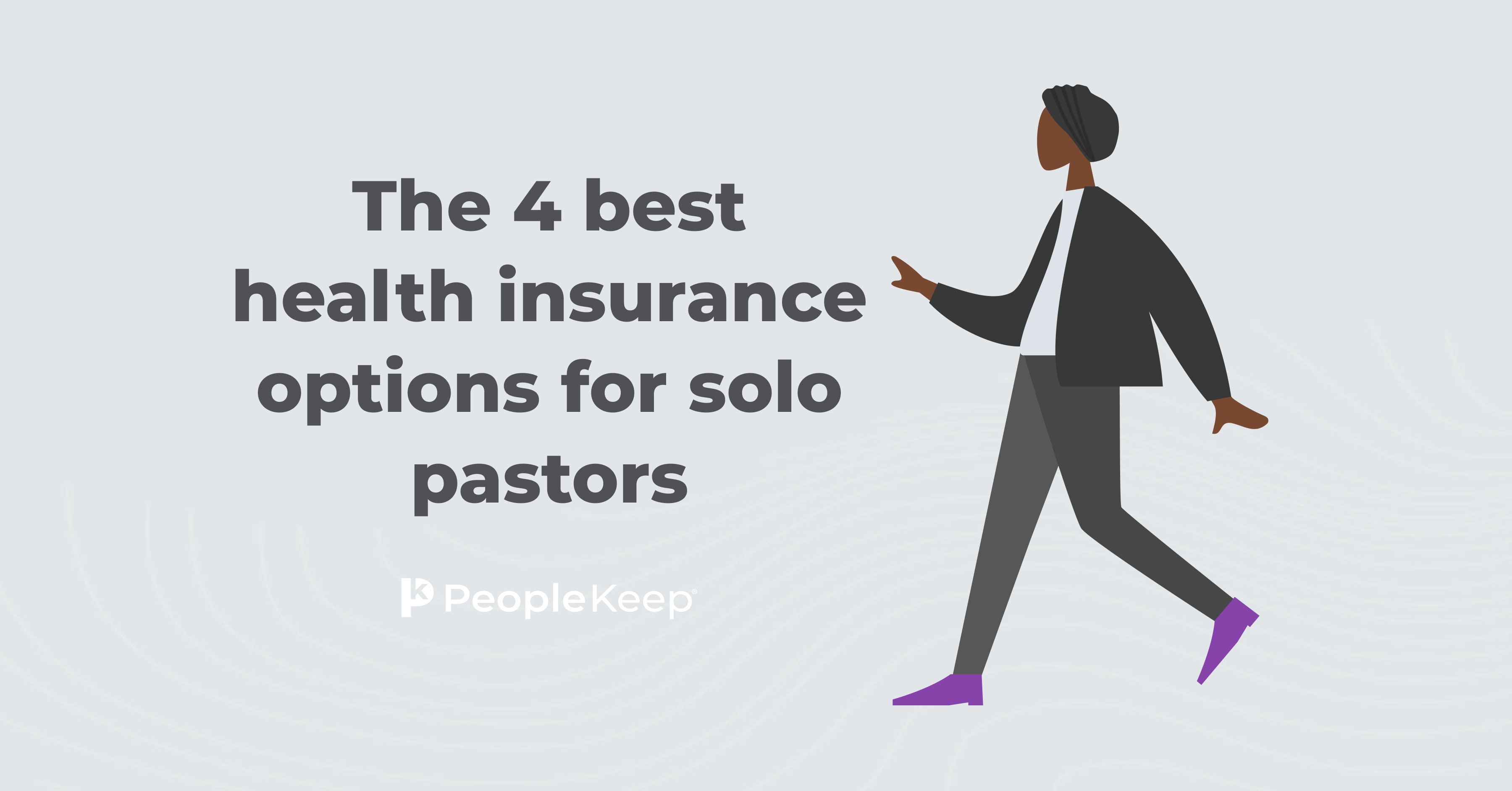Health insurance options for pastors and clergy
By Holly Bengfort on February 13, 2024 at 7:56 AM
When offering health insurance to pastors and clergy, churches with tight budgets may feel like they have no good options. Some large independent churches and many denominations offer group health insurance plans, but more and more denominations are dropping healthcare coverage for their pastors and smaller independent churches because they simply can't afford expensive group health insurance premiums.
If you're looking for an affordable way to take care of your pastor's health benefits, there are more options for churches than you think.
In this article, we'll go over three ways to offer your church staff health insurance coverage.
Takeaways from this blog post:
- Traditional group health insurance plans are expensive and may have participation rate requirements, making them inaccessible for smaller churches.
- Health reimbursement arrangements (HRAs) provide a more customizable option for churches to offer health benefits. They allow reimbursement for out-of-pocket medical expenses and individual health insurance premiums.
- Taxable stipends are another flexible option for offering health insurance benefits to pastors and clergy.
Option 1: Traditional group health insurance
The first option is a group health insurance policy purchased through a federal or state marketplace or a broker. This is the traditional route for finding health insurance, but it doesn't come without complications.
Due to rising health insurance costs, a group plan isn't always an option for churches. Many small churches have a small budget to match, so a group health insurance plan may not be feasible.
Additionally, you may have to meet a set participation rate, meaning that if you don't have enough employees who enroll in the plan, you won't be able to offer it all. This is especially difficult if the available plans aren't suitable for meeting all your employees' needs.
Option 2: Health reimbursement arrangements (HRA)
A more customizable option for pastors and ministers is a health reimbursement arrangement (HRA). An HRA is an IRS-approved health benefit employers use to reimburse W-2 employees for out-of-pocket medical expenses and individual health insurance premiums.
The two most common types of HRAs are the qualified small employer HRA (QSEHRA) and individual coverage HRA (ICHRA).
While the QSEHRA is only for organizations with fewer than 50 full-time equivalent employees (FTEs), an ICHRA is for organizations of all sizes. So, no matter your organization's size, there's an HRA that works for you.
With an HRA, the reimbursement process follows three simple steps:
- The organization sets a monthly allowance of tax-free money they will offer to their eligible employees to use on healthcare expenses.
- It’s important to note that the IRS sets maximum annual contribution limits for the QSEHRA. However, ICHRAs have no annual limits.
- Employees purchase the health insurance policy and healthcare essentials that work best for them. If their insurance policy meets minimum essential coverage (MEC), their reimbursements will be income tax-free.
- Employees submit proof they incurred an eligible expense, typically in the form of a receipt or invoice. Once the employer or HRA administrator reviews and approves the expense, they reimburse the employee up to their allowance amount.
Healthcare sharing ministry membership fees or donations aren't eligible for reimbursement since the IRS and Affordable Care Act (ACA) don’t consider healthcare sharing ministry programs insurance. However, pastors and clergy can still use their HRA allowance to pay for out-of-pocket expenses, including prescription drugs, counseling, over-the-counter medicine, and more on a taxable basis.
By offering an HRA, your church’s W-2 employees can purchase the individual health insurance policy that best fits their needs. As long as their plan meets MEC, you can reimburse them tax-free. Because you set a custom monthly allowance for your employees, you won’t incur any additional expenses, and any unused funds will remain with you at the end of the plan year. This provides greater cost savings than a group plan.
HRAs and premium tax credits
Depending on their income level, pastors may qualify for premium tax credits if they purchase a policy on the federal marketplace or state exchanges. Premium tax credits lessen the financial stress of purchasing individual health insurance by lowering the cost of premiums.
Whether or not your church staff can claim their tax credits can get tricky if you're offering an HRA, and the rules are different depending on which type of HRA you're offering. Let's start with the QSEHRA. If a pastor has premium tax credits and their QSEHRA allowance is affordable, they can’t claim their tax credit. If their QSEHRA allowance isn’t affordable, they must reduce their premium tax credit dollar-for-dollar by their monthly HRA allowance.
With an ICHRA, employees with a premium tax credit can't keep their tax credit while also participating in the HRA. Per ICHRA regulations, the employee must either waive their premium tax credit to participate in the ICHRA or opt out of the ICHRA to receive their full premium tax credit.
Option 3: Taxable stipends
If you're looking for a more relaxed benefit, then a taxable stipend is another option. With a stipend, organizations can simply offer their pastors and other church staff a fixed amount of money that they can spend on health insurance premiums and other medical costs.
The stipend is essentially extra money added to the pastor's paycheck to use however they like, so the additional funds aren't regulated and count as taxable income.
Stipends are more flexible than HRAs when it comes to premium tax credits. Employees can participate in their church's stipend benefit and collect their full premium tax credit with no reduction in the credit amount. Employers may also prefer stipends because they are simple to administer with less compliance hassle than other health benefit options.
However, if your organization has 50 or more FTEs, a stipend won’t satisfy the ACA’s employer mandate. If that’s the case, you’ll need to offer a group plan or an ICHRA to satisfy the law.
Conclusion
Pastors and clergy often fall through the cracks when it comes to health insurance benefits simply because small churches can't afford to offer any. Larger churches might be able to purchase their own group plans, but smaller churches often struggle to offer any type of health coverage for their pastor.
However, offering a health plan doesn't have to be costly—by considering more affordable options like an HRA, you can help your pastors stay healthy and happy.
This article was originally published on October 27, 2020. It was last updated on February 13, 2024.
Check out more resources
See these related articles

Can I pair employer benefits with premium tax credits?
Discover if you can combine employer benefits with premium tax credits when it comes to health insurance. Get all the answers in this informative post.

The four best health insurance options for solo pastors
Churches with solo pastors often face budget constraints, but there are several ways they can still afford health insurance benefits.

What is a health insurance subsidy?
Discover the ins and outs of health insurance subsidies with this comprehensive overview. Learn how they can help make healthcare more affordable for you.



